Hilda Flello – one hundred years in Chesham
Hilda was born in 1906, the middle child of seven, to Arthur Edward King and Elizabeth Kate (nee Channer). Hilda was interviewed in January 2007 and this is her story.
Arthur and Elizabeth had their first 3 children in Church Street and three further children were born in Alexander Street. Then in 1914 they moved into one of the first council houses in Chesham, in Brockhurst Road, where the youngest child was born. There were only 20 houses at first and the road wasn’t paved until after WWI. The land had been the Chesham Generals’ football ground so there was plenty of space for the children to play on.
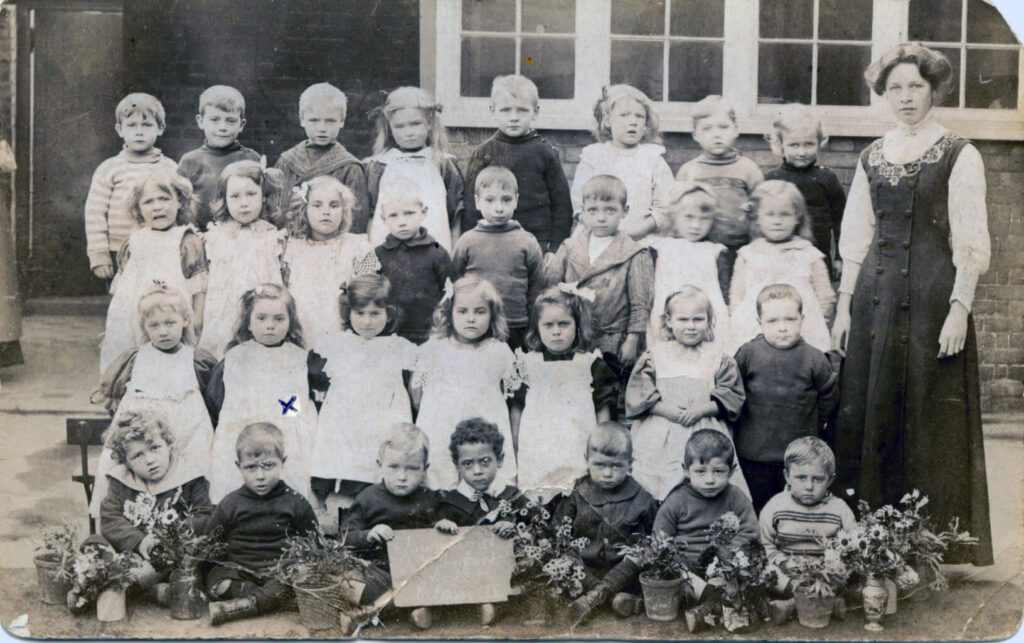
Hilda started at Townsend Road School at the age of three, walking there and back twice daily – no buses or school lunches available then. The school became overcrowded and she was offered the chance to go to White Hill School. She didn’t really want to change schools but a friend was going so she decided to join her. She remembers happy days at both schools. Music was taught at White Hill and her sister learned to play the piano. The family attended the Methodist Church, where her mother sang in the choir and Hilda went to Sunday school morning and afternoon.
Sunday was a special day for Hilda – she remembers many activities all year round, fetes and Sunday school treats which always included a tea afterwards. She remembers the delight of being taken to Ley Hill farm, riding in open farm carts. On returning to Chesham all the children were given an orange and a new laid egg.
Much of the traffic then was horse-drawn and the town was busy with brewery drays, timber carts, etc. One local doctor made his rounds on a tricycle, wearing a top hat.
The main industries during her childhood were wood ware and boot making. Her grandfather, who lived in Ley Hill, would make a pair of boots at home and then walk to Chesham, to a factory in Waterside, where he would be paid 2s 6d (12½p).
When she was 10 years old, her youngest sister was born. She was very excited at the prospect of having a baby sister but wondered why a baby would be brought to a house where there were already so many children! ‘Because we know how to look after them’, her father told her. (No sex education in those days!)
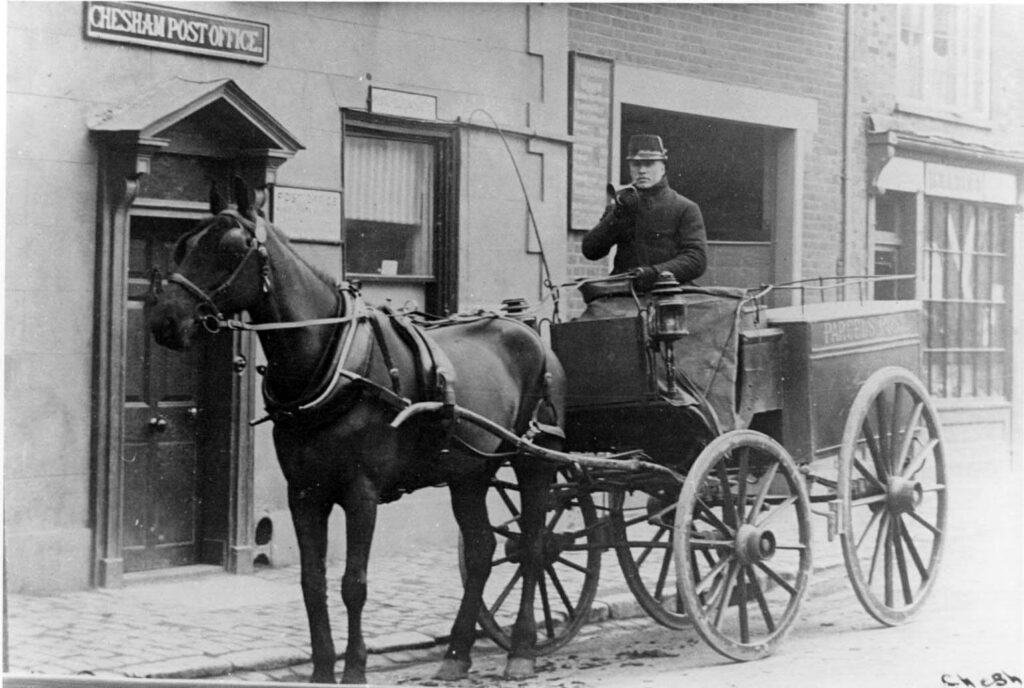
Twice a day they would see the Mail cart go through to Berkhamsted. The driver sat high up at the front and had a long whip and a bulldog by his side.
After the First World War there were many changes in Chesham – bigger and better shops, a cinema, public transport. It cost one penny to take a bus from Nashleigh Hill to the Pound (Red Lion Street).
She recalls that Chesham had a wonderful reputation for music. There were many excellent choirs, concert parties and festivals. All the schools and Sunday schools participated. She remembers many well-known singers in the town – Bert Batchelor, Henry Gomm, Mabel Howard and Dolly Hanks to name a few.
At the age of 14 Hilda started work. She didn’t want to work in a factory, as so many young Chesham girls had to. Instead she secured a job at Jones’ sweet and tobacconist’s shop at 113 High Street and was paid 7s 6d (37½p) per week. They were long hours then, until 7 in the evening and all day Saturday, but on Thursday afternoons the shop closed and she was free to spend time with friends. She was very happy at the shop and the family who ran it treated her like a daughter.
One day a young man walked into the shop. He was 18 year old Stan Flello*, who had recently moved to Chesham from Buckingham and was in lodgings in the town. He had left school at 14 and become an errand boy for the Post Office. By this time he was training to be a Post Office engineer, a very good job in those days. Stan’s mother, a Londoner originally, had been a lady’s maid and his father a groom, looking after race horses. Stan became a frequent visitor to the shop and soon he and Hilda were a couple. They saved hard to get married but it wasn’t until Hilda was 27, in 1933, that they finally managed the 12 shillings per week rent on a three-bedroomed house, also in Brockhurst Road. The house was owned by Lewis’ the fishmongers. The marriage took place in St Mary’s Church.

During the 1940s the couple were able to purchase the house. They took in two or three boy evacuees during the War. Stan served in Bomber Command, based at High Wycombe. Their only child, a daughter, was born during this time.
Stan was musical and played the violin to earn extra money. He belonged to Jack Nevett’s ‘Rhythm Boys’ and they paid for Stan to have a telephone, a rare acquisition in those days. This was often used by neighbours and the local doctor. Stan was also quite early to purchase a car. He and Hilda used it to travel all over the country together for holidays, including Scotland and the Lake District. Before they were married they often went on camping holidays for a couple of weeks with Hilda’s sister and husband, several times to North Wales and Cornwall. Stan was very interested in photography and with three other men founded the Chesham Camera Club.
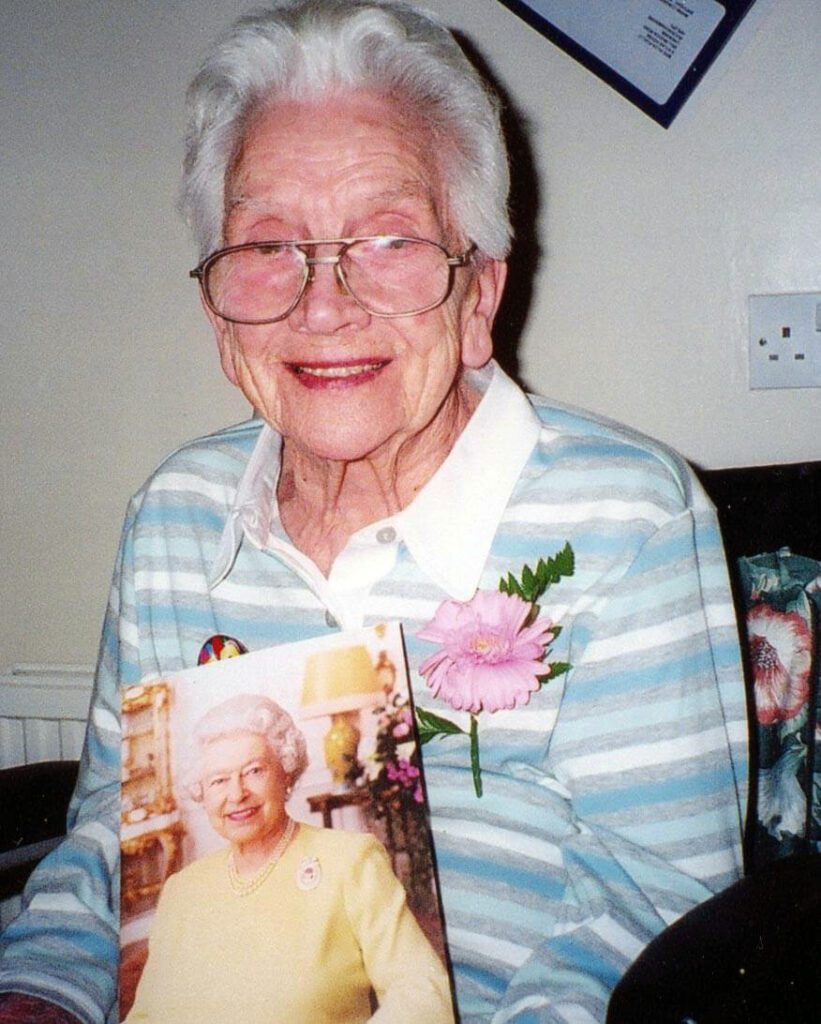
Sadly, Stan died suddenly in his early sixties and Hilda was left alone. Her father died in his eighties but her mother lived to be one hundred and Hilda arranged a party for her to celebrate. She only lived another six months.
Thirty years later her own daughter did the same for her when Hilda celebrated her 100th birthday in September 2006. Hilda had moved to Atlas House in 1994 and the party was held there, attended by fifty friends and family members, including three grandchildren and four great-grandchildren.
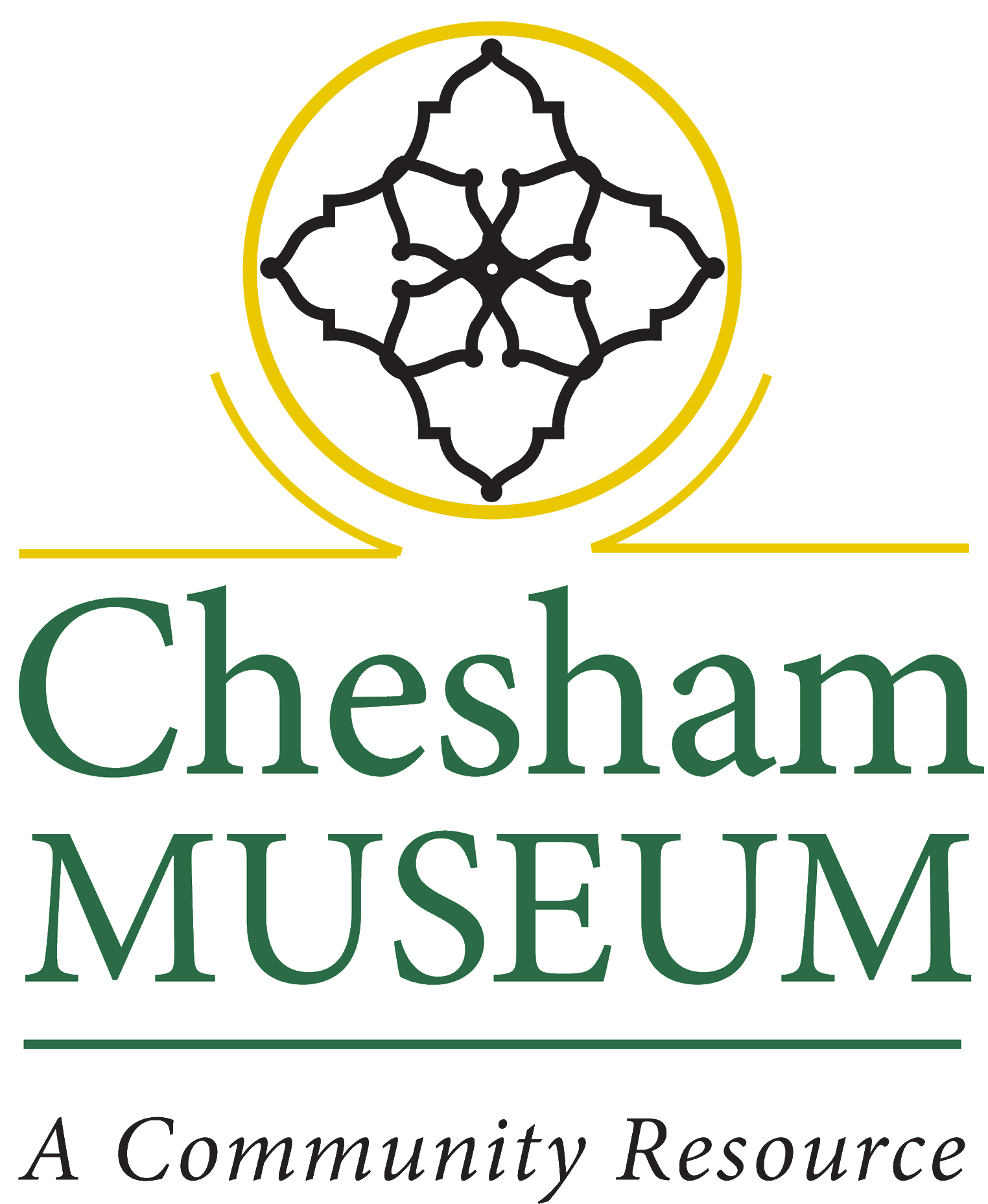

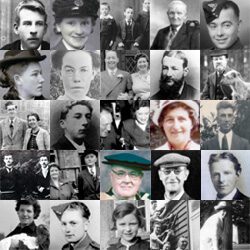
 explore Boots
explore Boots